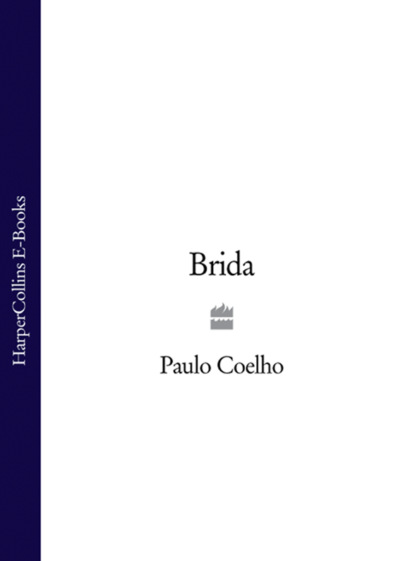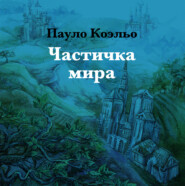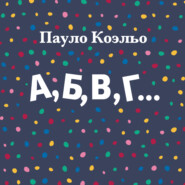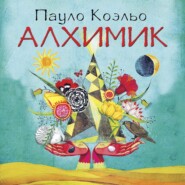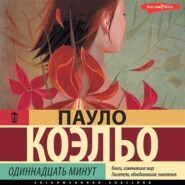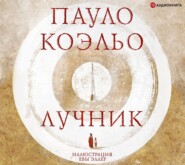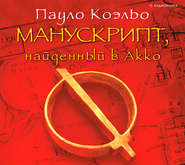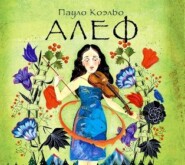По всем вопросам обращайтесь на: info@litportal.ru
(©) 2003-2024.
✖
Brida
Автор
Год написания книги
2018
Настройки чтения
Размер шрифта
Высота строк
Поля
Now he was pleased that he hadn’t, and he felt proud that the girl, in all her youthful confusion, was his Soulmate.
In the centre of Dublin (#ulink_90be71be-84b9-565b-bec2-4b89701b2547) there is a bookshop that specialises in occult studies. It has never advertised in newspapers or magazines; the people who go there do so on the recommendation of others, and the owner is glad to have such a select, specialist clientele.
Even so, the bookshop is always full. Brida had heard about it and finally managed to get the address from the person teaching the course on astral travel she was currently attending. She went there late one afternoon, after work, and was delighted with the place.
From then on, whenever she could, she would go there to look at the books, but she never bought any because they were all imported and very expensive. She would leaf through them, studying the designs and symbols in some of the books, and intuitively tuning in to the vibration of all that accumulated knowledge. She had grown more cautious since her experience with the Magus. Sometimes she would bemoan to herself the fact that she only managed to take part in things she could already understand. She sensed that she was missing out on something very important in life, and that if she carried on as she was, she would simply continue to repeat the same experiences over and over. And yet she didn’t have the courage to change. She needed to be constantly struggling to discover her path; now that she had experienced the Dark Night, she knew that she didn’t want to find her way through it. And although she was sometimes dissatisfied with herself, she felt unable to go beyond her own limitations.
Books were safer. The shelves contained reprints of treatises written hundreds of years ago; it was an area in which very few people dared to say anything new. And in the pages of these books, occult knowledge, distant and remote, seemed to smile at the efforts made by each generation to uncover it.
Apart from looking at the books, Brida had another important reason for going to the shop – to observe the other customers. Sometimes, she would pretend to be reading some respectable alchemical treatise, when she was, in fact, scrutinising the men and women, usually older than her, who frequented the shop and who knew what they wanted and always went to the right shelf. She tried to imagine what they must be like in private. Some looked very wise, capable of awakening forces and powers of which mere mortals knew nothing. Others appeared to be desperately trying to rediscover answers they had long ago forgotten, but without which life had no meaning.
She noticed, too, that the most regular customers always had a word with the owner. They talked about strange things, such as the phases of the moon, the properties of stones and the correct pronunciation of ritual words.
One afternoon, Brida got up sufficient courage to do the same. She was on her way back from work, on a day when everything had gone well. She thought she should make the most of that good luck.
‘I know that there are secret societies,’ she said. She thought this a good conversational opener. She ‘knew’ something.
But the owner merely looked up from his accounts and stared at her in amazement.
‘I was with the Magus in Folk,’ said Brida, rather put out now, and not knowing quite how to continue. ‘He explained to me about the Dark Night. He told me that the path of wisdom means not being afraid to make mistakes.’
She noticed that the owner was listening more intently now. If the Magus had bothered to teach her something, she must be special.
‘If you know that the Dark Night is the path, why do you need books?’ he said at last, and she knew that mentioning the Magus had not been a good idea.
‘Because that isn’t the way I want to learn,’ she said.
The owner looked more closely at the young woman standing before him. While she clearly had a Gift, it was nevertheless odd that the Magus of Folk should have devoted so much time to her. There must be something else. She could be lying, but then again she had spoken of the Dark Night.
‘You often come here,’ he said. ‘You arrive, read a few books, but never buy anything.’
‘They’re too expensive,’ said Brida, sensing that he wanted to continue the conversation. ‘But I’ve read other books and I’ve attended courses.’
She told him the names of her teachers, hoping to impress him still more.
Again things did not go quite as she expected. The owner interrupted her and went to serve another customer who wanted to know if the book he’d ordered had come in, an almanac containing the planetary positions for the next hundred years.
The owner examined various packages stored underneath the counter. Brida saw that the packages bore stamps from all corners of the world.
She was getting more and more nervous. Her initial courage had vanished completely, but she had no option but to wait for the other customer to check that it was the right book, pay for it, receive his change and leave. Only then did the owner turn to her again.
‘I don’t know how to continue,’ said Brida. Her eyes were beginning to fill with tears.
‘What are you good at?’ asked the owner.
‘Going after what I believe in.’ That was the only possible reply; she spent her life in pursuit of what she believed in. The only problem was that she believed in something different every day.
The owner wrote a name on the sheet of paper on which he was doing his accounts, tore off the piece he had written on and held it for a moment in his hand.
‘I’m going to give you an address,’ he said. ‘There was a time when people accepted magical experiences as natural. There were no priests then, and no one went chasing after the secrets of the occult.’
Brida wasn’t sure whether he was referring to her or not.
‘Do you know what magic is?’ he asked.
‘It’s a bridge between the visible world and the invisible world.’
The owner gave her the piece of paper. On it was a phone number and a name: Wicca.
Brida snatched the paper from him, thanked him and left. When she reached the door, she turned and said:
‘I also know that magic speaks many languages, even the language of booksellers, who pretend to be unhelpful, but are, in fact, very generous and approachable.’
She blew him a kiss and disappeared. The bookseller paused over his accounts, and stood looking at his shop. ‘The Magus of Folk taught her those things,’ he thought. A Gift, however good, wasn’t reason enough for the Magus to take such an interest. There must be some other motive. Wicca would find it out.
It was time to close the shop. The bookseller had noticed lately that his clientele was starting to change. It was becoming younger. As the old treatises crowding his shelves predicted, things were finally beginning to return to the place from whence they came.
The old building was in the centre (#ulink_5ec3a818-5b63-5921-a52e-d3e24059bd72) of town, in a place that is now only visited by tourists in search of a little nineteenth-century romanticism. Brida had had to wait a week before Wicca would agree to see her, and now she was standing outside a mysterious grey building, struggling to contain her excitement. That building was exactly as she’d imagined it would be; it was just the kind of place where the type of person who visited the bookshop should live.
There was no lift. She went up the stairs slowly so as not to be out of breath when she reached the floor she wanted, and when she arrived, she rang the bell of the only door there.
Inside, a dog barked. Then, after a brief delay, a slim, elegant, serious-looking woman opened the door.
‘I phoned earlier,’ said Brida.
Wicca indicated that she should come in, and Brida found herself in a living room entirely painted in white and with examples of modern art everywhere – with paintings on the walls and sculptures and vases on the tables. The light from outside was filtered through white curtains. The room was cleverly divided into different areas to accommodate sofas, dining table and a well-stocked library. Everything was in the very best taste and reminded Brida of the architecture and design magazines she used to look at on the newstands.
‘It must have cost a fortune,’ she thought.
Wicca led Brida into the vast living room, into an area furnished by two Italian armchairs in leather and steel. Between the two chairs was a low glass table with steel legs.
‘You’re very young,’ said Wicca at last.
There was little point in making her usual comment about ballerinas, and so Brida said nothing, waiting to hear what the woman would say next and meanwhile wondering what such a modern design was doing inside an old building like that. Her romantic idea of the search for knowledge had once again been shaken.
‘He phoned me,’ Wicca said, and Brida understood that she was referring to the bookseller.
‘I came in search of a Teacher. I want to follow the road of magic.’
Wicca looked at Brida. She clearly possessed a Gift, but she needed to know why the Magus of Folk had been so interested in her. The Gift on its own was not enough. If the Magus had been new to magic, he might have been impressed by the clarity with which the Gift manifested itself in the young woman, but he had lived long enough to know that everyone possesses a Gift. He was wise to such traps.
She got up, went over to one of the bookshelves and picked up her favourite deck of cards.
‘Do you know how to lay the cards?’ she asked.
Brida nodded. She had done a few courses and knew that the deck in the woman’s hand was a tarot deck, with seventy-eight cards. She had learned various ways of laying out the tarot and was glad to have a chance to show off her knowledge.
However, the woman kept hold of the deck. She shuffled the cards, then placed them face down, in no particular order, on the glass table. This was a method quite unlike any Brida had learned on her courses. The woman sat looking at them for a moment, said a few words in a strange language, then turned over just one of the cards.





